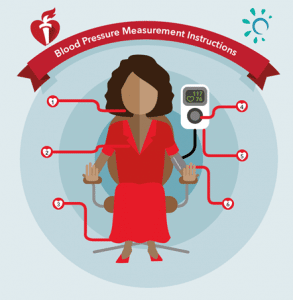Categories: Insurance, Pregnancy, Self-care
December 1, 2022
Instances of high blood pressure during pregnancy are on the rise. If diagnosed with high or elevated blood pressure during pregnancy, it is important to work closely with your healthcare team and self-monitor at home to minimize risk to both parent and baby. Here are some tips to help prevent and manage hypertension.
Blood Pressure Concerns During Pregnancy
During pregnancy, there are certain blood pressure disorders to be aware of.
- Gestational hypertension, or high blood pressure during pregnancy, can decrease blood flow to the placenta, meaning less oxygen and nutrients get to your baby. It can result in low birth weight and develop into a more serious condition called preeclampsia.
- Preeclampsia is a serious blood pressure condition that includes high blood pressure and protein in the urine after the 20th week of pregnancy. It can also affect other organs, which can be serious for both parent and baby.
- Eclampsia is a rare but severe complication of preeclampsia involving seizures.
- Low blood pressure is more common during pregnancy. While low blood pressure typically isn’t a large cause for concern, it could be the result of an underlying health condition.
It’s important to monitor and manage these conditions to minimize risk to both mom and baby. Additional care should be taken when pregnant with multiples. As with all medical conditions, it is important to get a diagnosis from a trusted healthcare provider and follow the guidance provided.
Managing Blood Pressure
If blood pressure becomes a concern during pregnancy, there are steps that can be taken to manage blood pressure disorders at home alongside the care of a healthcare provider.
Preventive measures can be taken to reduce the chance of blood pressure disorders. Even if there is already a diagnosed blood pressure disorder, the same measures can be used to help manage blood pressure levels and lower the risk of further complications from high blood pressure.
- Reduce salt intake
- Eat a healthy diet
- Monitor weight gain
- Exercise regularly
- Manage stress and anxiety
- Do not drink, smoke, vape, or take illicit drugs; avoid secondhand smoke
- Follow healthcare providers plans (appointments, home monitoring, medications when prescribed, prenatal vitamins)
Home Monitoring
The American Heart Association recommends home monitoring for all people with hypertension (high blood pressure) to help determine the effectiveness of treatments. For pregnant women, it is especially important to monitor high blood pressure to catch early stages of preeclampsia.
There are several ways to obtain a home blood pressure monitor.
- While ordering a free breast pump through Acelleron, you will be asked if there has been an elevated or high blood pressure diagnosis. If so, a blood pressure monitor can be ordered at the same time as a breast pump.
- Blood pressure monitors can be obtained at any time (pregnant or not). Some insurance plans cover blood pressure monitors with a prescription from a healthcare provider.
- Blood pressure monitors can also be purchased out of pocket through Amazon or your local pharmacy.
Measuring Blood Pressure At Home
To effectively manage your blood pressure, the first step is knowing your numbers. Following these instructions will help you get the most accurate reading:
- Don’t drink caffeine or alcohol, smoke, or exercise 30 minutes before your reading. If needed, empty your bladder beforehand.
- Rest for at least 5 minutes before taking your blood pressure. Sit still and do not talk.
- Relax in a chair with your back straight and supported, legs uncrossed, and feet flat on the floor.
- Take at least 2 readings, 1 minute apart, in the morning before medications and in the evening before dinner.
- Be sure to use a monitor that is validated and calibrated. A proper size cuff should feel snug with just enough room for two fingers to fit between the cuff and your arm.
- Rest your cuffed arm on a flat surface at heart level, with the cuff placed above the bend of the elbow and tubing aligned with the inside center of the arm.
- Share the results with your provider. Ask them what blood pressure levels are healthy for you and what to do if/when your measurements are not within the desired range.

For more information, read this article from the American Heart Association’s about Having a Healthy Pregnancy.
